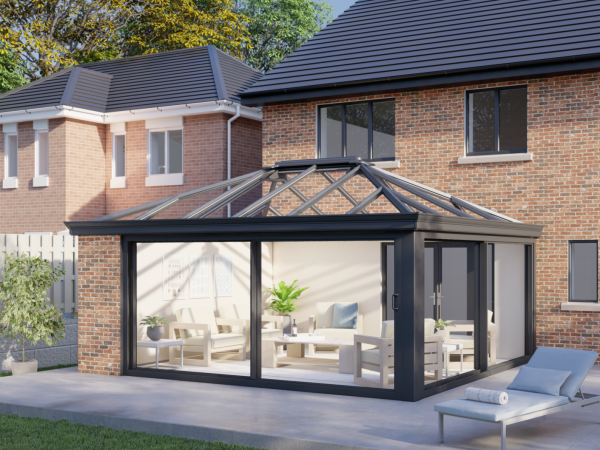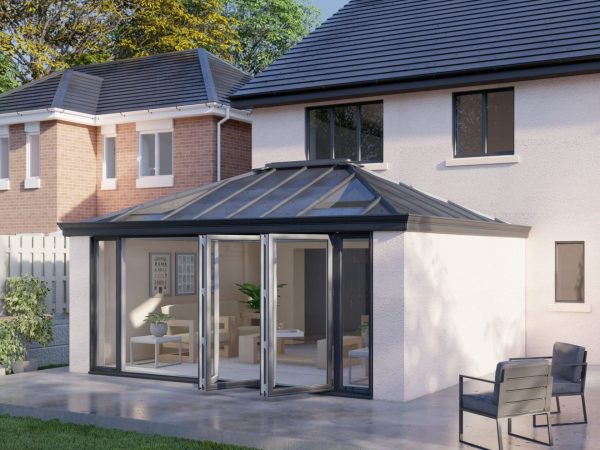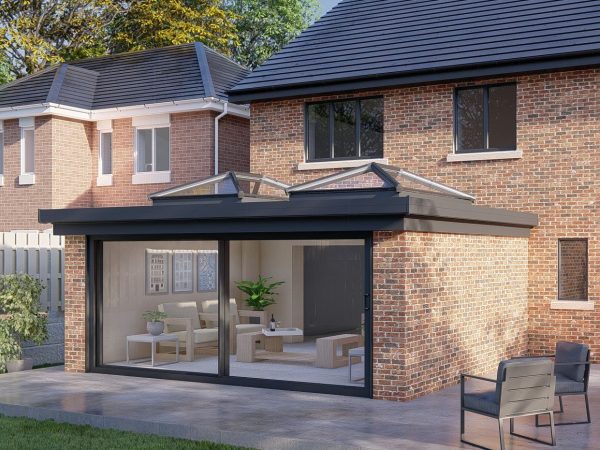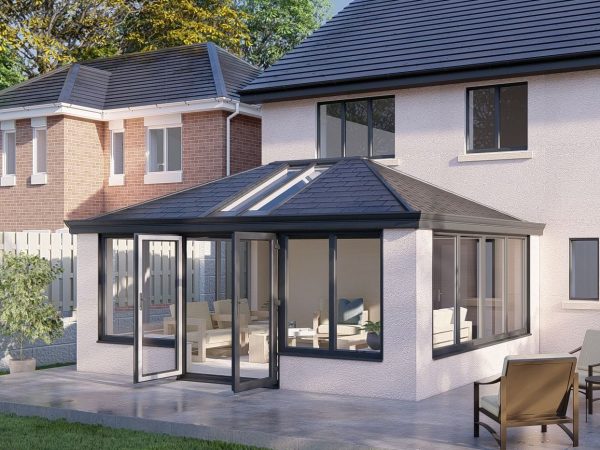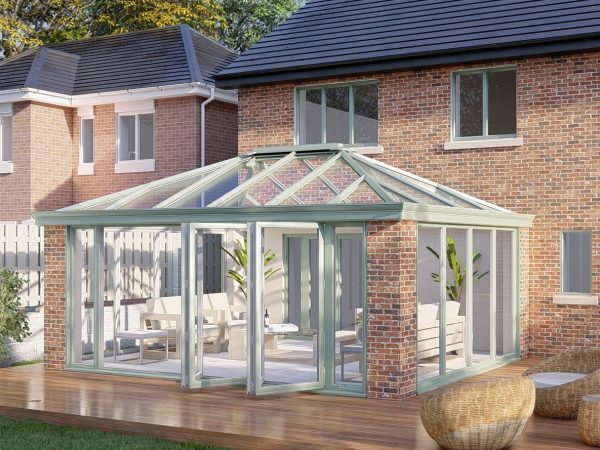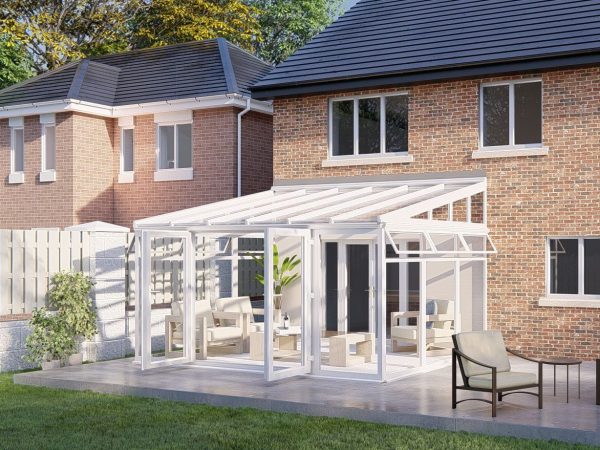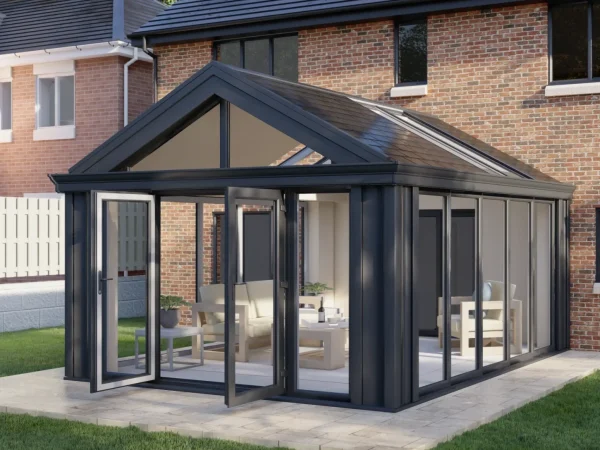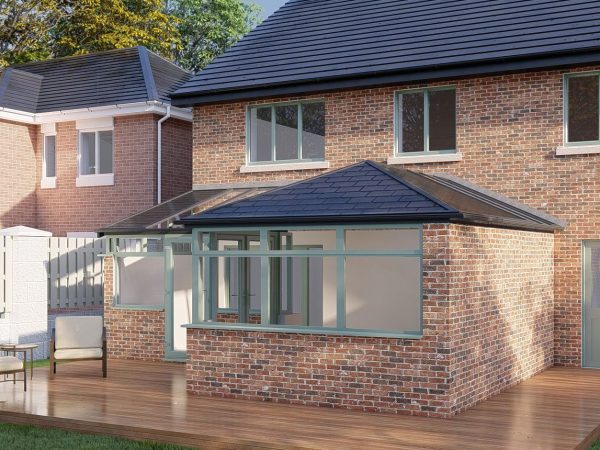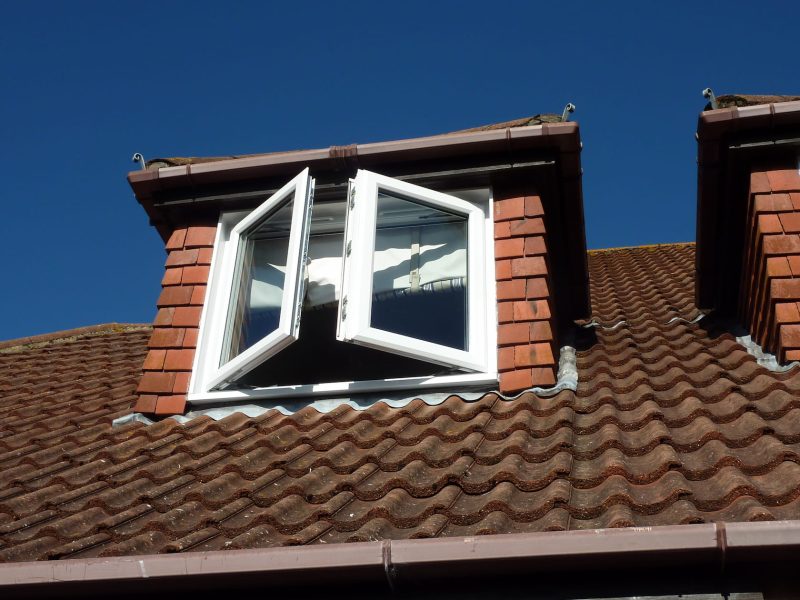What is a casement window?
A casement window is a top-or-side hinged window, usually made up of a single pane of glass. Because they have a built-in sash (or sub-frame) to ensure they can be opened, they’re usually a little smaller than the opening they’re built into — although modern materials like aluminium are allowing us to fit casement windows with slimmer and slimmer frames.
Historically, the word ‘casement’ referred to the part of a window that opens. Gradually, the word came to mean the specific design of window we know and appreciate today.
An important distinction — casement windows are not picture windows, which are usually slightly larger but cannot be opened, as they do not have a sash.
Click on the image below for our full infographic
What is a flush casement window?
Flush casement windows are almost identical to ordinary casement windows, but with one crucial difference. Modern casement windows are sometimes referred to as being “lipped” — if you look at them side-on, you can see that the openable segments of the window (or casements) protrude slightly from the frame.
The frames of flush casement windows, on the other hand, do not protrude at all, creating a completely flat window surface. This produces a look that is at once modern and traditional — the design takes its inspiration from traditional joinery, while the overall effect once the windows are in place is sleek and elegant.
Looking for a way to give your home a subtle air of sophistication? Flush casement windows look good, have all of the advantages of their lipped cousins and a few small advantages of their own.
What are the advantages of casement windows
Casement windows’ first point in their favour is their cost. Pound for pound, they’re probably the most affordable kind of window we fit, and their simple ergonomic design makes them hard-wearing and long-lasting.
Another advantage is their superb insulative properties. A well-fitted modern casement window can give a completely airtight fit when closed, with the “lipped” exterior helping to provide a good seal for the frame.
As a result, modern casement windows don’t let in annoying draughts, and they provide excellent soundproofing. With traffic and general levels of noisy fun set to intensify on Britain’s roads during the great summer unLockdown, this might be a real selling point for some buyers.
Finally, casement windows are prized for their versatility. Because they’re so simple, they have a variety of possible uses — they can be used to really put the focus onto your home’s other more stand-out features, or they can be decorated with a pleasant coloured or woodgrain-finish for maximum good looks.
What are the disadvantages of casement windows
Casement windows’ few disadvantages are very minor and arise only from their design.
For example, it may simply be the case that casements don’t look as good as other window designs on your property, that you don’t wish to fit the country’s most common kind of window or that you live in a heritage-protected zone that stipulates sympathetic building.
With that said, ordinary modern casements’ “lips” can sometimes be exposed to more wear and tear than the sash as a whole due to their design. While our modern casements are British-made, thoroughly weather-proofed and built to last, small differences in the exposure of parts of a window can sometimes result in them taking on a slightly different appearance. Essentially, over a long enough time period, casement windows can get old like any other part of your home.
Heritage properties
Live in an area with heritage protections? This can add another layer of complexity to choosing your windows and doors, as well as restricting how you change the appearance of your home more generally.
Most modern uPVC casement windows might not be up to scratch here, but don’t worry — we’re experts in heritage windows, and often find that tastefully-designed flush casement windows occupy the middle ground between affordable window mod-cons and expensive, old-style designs.
Why choose flush casement windows
First off, we should stress that there really is virtually no difference between flush casement and lipped casement windows in terms of their base properties. Both kinds of casements are seriously insulative, easy to use, long-lasting and versatile. They both provide clear views of the outdoors and are available in a variety of finishes.
With that said, flush casements carry two key advantages over their lipped cousins. First, as detailed above, is their particular suitability for heritage areas. Second is their sleek, subtle and pleasant appearance, which makes them more and more popular with each passing year.
Sometimes, especially on new-build housing, some find that lipped casement windows can look drab, plain or even a little Brutalist. So, depending on your personal preference, why not think about a more elegant alternative?
Want to talk over your window options, or make an enquiry about flush casement windows? Don’t hesitate to get in touch.
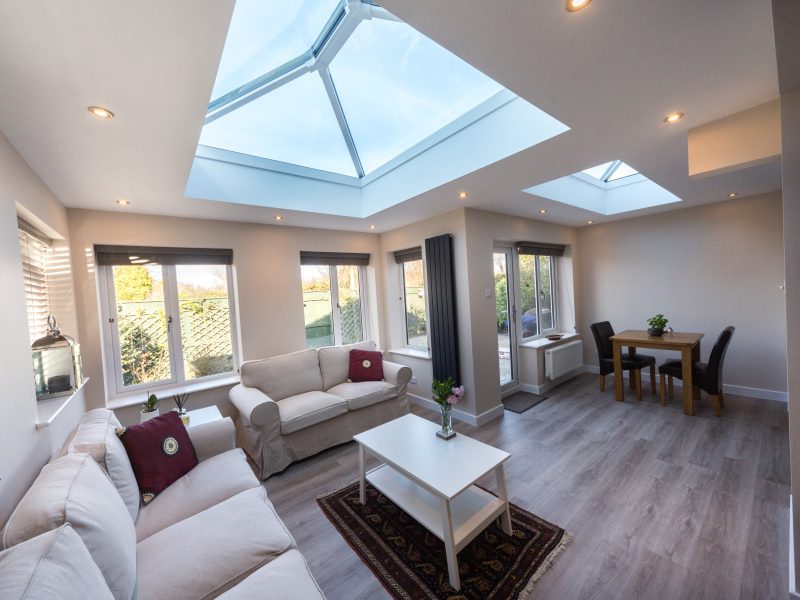 Architect Designed Living Spaces
Architect Designed Living Spaces
 Find Your Local Showroom
Find Your Local Showroom
